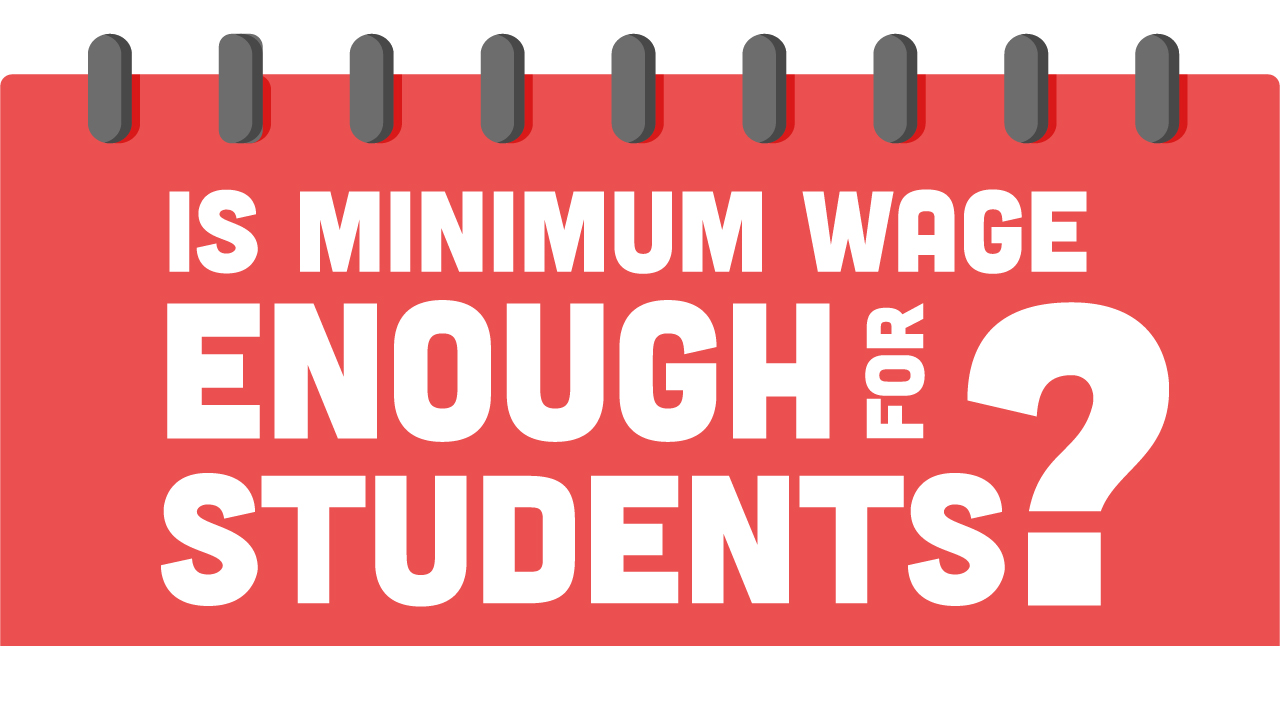Is minimum wage enough for students?
 CREDIT: FSU PUBLICATIONS AND COMMUNICATIONS DEPARTMENT
CREDIT: FSU PUBLICATIONS AND COMMUNICATIONS DEPARTMENTMinimum wage is a topic that is constantly brought up in conversations. Some believe that the minimum wage isn’t enough, some think it is too much, whilst others believe that the current rate is enough for livable expenses. However, with the cost of living increasing in recent years, the discussion prevails.
For Advocacy and Communications Coordinator of the Fanshawe Student Union (FSU), Tanya Daulat, speaking up for a fair wage as a student can be a challenge.
“I don’t believe that $15 is OK for the students, especially when they work parttime,” Doulat said. She expressed that although she believes the minimum wage isn’t enough for the students to make a substantial living, some students are still accepting this salary from employers. With that said, Daulat acknowledged that it can be more challenging for students to advocate for themselves and ask for a higher pay rate.
“Don’t settle for a job where you think you don’t have to use your skills and get minimum pay,” she said. “Try something new, get out of your comfort zone, because once you do, that is when you can negotiate your salary or the wage.”
Daulat also recognized that she sees students become comfortable with a minimum wage job, and as a result, they fail in applying for a position that is more aligned within their skill set or studies.
“I would suggest them to be a bit more out there in finding jobs that can provide them with experience as well as recognize their skills in terms of wages,” Daulat said.
She also noted that if a student is restricted to only working 20 hours a week, that the minimum wage would not be enough to sustain themselves living in Ontario.
“They will be paying taxes, rent, other expenses, and possibly a huge educational loan to consider,” Doulat said. She recognized that to have a healthy balance in terms of lifestyle, students should be able to earn a little more. Daulat also indicated the importance of education and responsibilities.
“As a student, concentrate on your studies first and your earnings second. But I do believe that both international students and domestic students have a lot of responsibilities in terms of adulthood.”
Roman Olshanskyi works in the restaurant industry in Ontario and has expressed his views on this subject as well as his advice for students who are earning a minimum wage. Olshanskyi shared that without making tips and only making minimum wage, that it would not be enough for a student to meet the basic living needs.
“If you’re a student, especially an international, you should find a job where you can get tips beside the salary, otherwise it won’t be enough,” Olshanskyi said. He also said that budgeting is extremely important for a student who is earning minimum wage. Olshanskyi noted that basic living expenses include rent, food, lifestyle, and appropriate seasonal apparel. He reminded students that although having a healthy and balanced lifestyle is important, students need to remember to prioritize their education.
“My advice on minimum wage would be to improve yourself in order to leave this range of jobs that pay you the minimum and try your best to go to university or college in order to get the job that is going to pay you at least a minimum of $25 to $35 an hour in order to make a good living,” Olshanskyi said. He reminded students that the minimum wage is a set amount for people to start their career and then improve their skills to earn more.
Both Olshanskyi and Daulat said that they believe the minimum wage isn’t enough to make a substantial living, especially for students. Both of them have shared that for international students it can be difficult to meet basic needs especially during the school semesters as students are limited to the number of hours they can legally work. Hopefully, with their tips in mind, students can obtain a more balanced financial lifestyle whilst studying.














